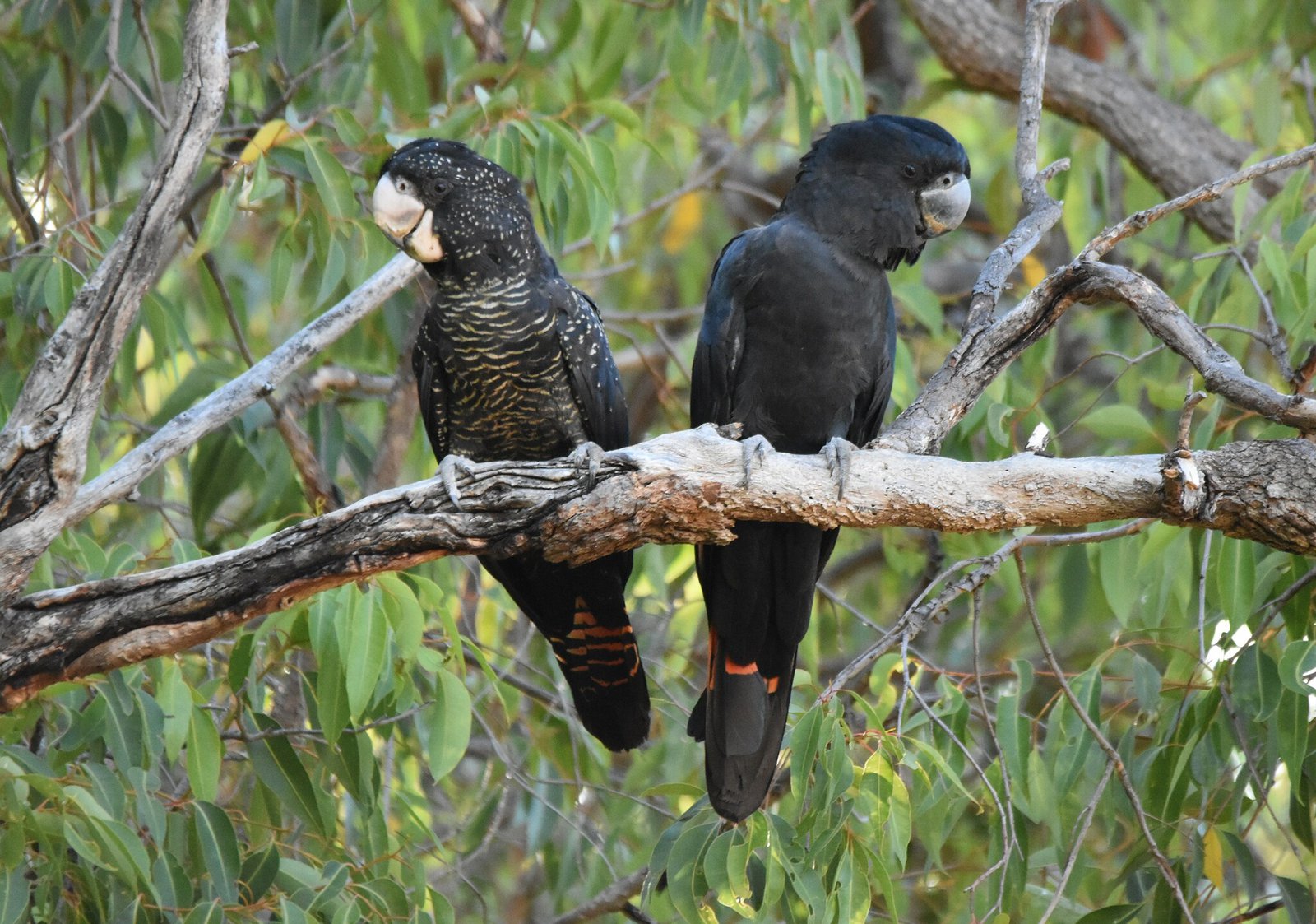Red-tailed Black-Cockatoo
Banks' Black Cockatoo, Great-billed Cockatoo
Glossy Black-Cockatoo & Yellow-tailed Black-Cockatoo
This is the first cockatoo to be illustrated by Sydney Parkinson, Joseph Banks' draughtsman on the Endeavour, while the Endeavour was being repaired in the Endeavour River.
What do Red-tailed Black-Cockatoos look like?
Identification
The Red-tailed Black-Cockatoo is mostly glossy black and has an erectile crest which forms an obvious helmet when raised and pushed forward. The male is glossy black with bright red panels in its tail. The female has generally duller plumage and has yellow spots on head, neck and wings. Her underbody is barred a pale orange-yellow and her tail has orange-yellow panels, barred black. This cockatoo is also called the Banksian, Black, Great-billed or Red-tailed Cockatoo or Banks' Black-Cockatoo.

https://creativecommons.org/licenses/by-nc/4.0/
Where do Red-tailed Black Cockatoos live?
Habitat
The Red-tailed Black-Cockatoo is found in a range of environments, but it is found mostly in Eucalyptus forests or woodlands and often in adjacent areas of woodlands or shrublands, especially if they have experienced fire recently. It can also be found in grasslands and farmlands.
Distribution
There are five subspecies of Red-tailed Black-Cockatoo occurring in eight discrete populations. Combining these, this species is found from the Pilbara and Kimberleys in Western Australia in a broad swath through the Top End, much of Queensland through to the region of the New South Wales border. It is then found from there down along the Darling River. The species also occurs in three geographically separate regions in each of: south-west Victoria/south-east South Australia; the south-west to west of Western Australia; central Australia in southern Northern Territory and northern South Australia.
Seasonality
Red-tailed Black-Cockatoos are described as dispersive, meaning that they move away from where they were born to where they breed and that they may breed in separate locations. They also appear to move around in response to seasonal food availability.
What do Red-tailed Black-Cockatoos eat and how do they communicate?
Feeding and diet
Red-tailed Black-Cockatoo generally feed in flocks but sometimes in twos or threes. They mainly eat seeds but also fruit, berries, nectar, flowers and sometimes insects and larvae. Seeds especially favoured are those of eucalypts, casuarinas, acacias and banksias.
Communication
Drawn out trumpet: 'kree', like rusty windmill.

https://creativecommons.org/licenses/by-nc/4.0/
How do Red-tailed Black-Cockatoos mate?
Breeding behaviours
Red-tailed Black-Cockatoos nest in tree hollows, which can be in a trunk, end of a dead branch or in a stump. Red-tailed Black-Cockatoos enter the nest hollow tail first. They usually choose eucalypts but will nest in Melaleucas, and they usually nest up high. The nest is lined with wood dust or fragments. The female incubates the eggs while the male feeds her.
Breeding Season: Any time of year depending on subspecies and location.
Are Red-tailed Black-Cockatoos endangered?
Economic impacts
Main threats to this cockatoo are habitat modification and clearing for agriculture or forestry.


